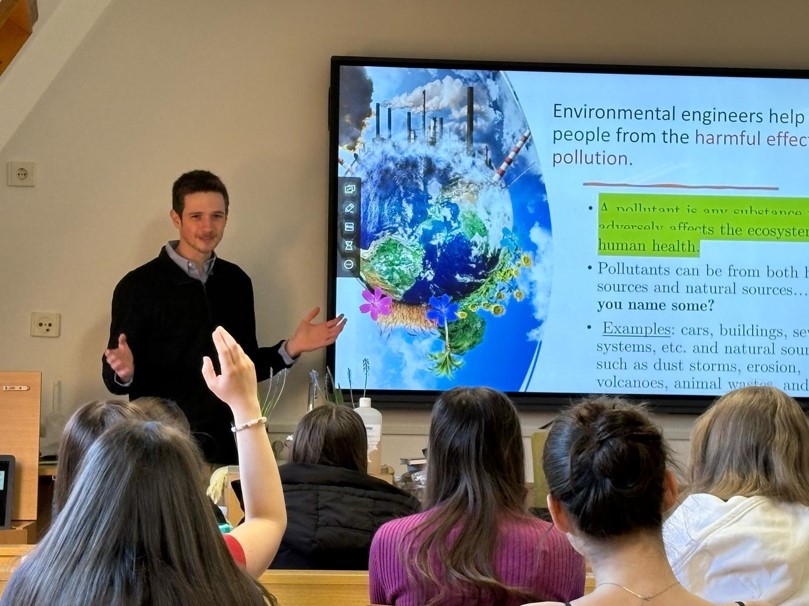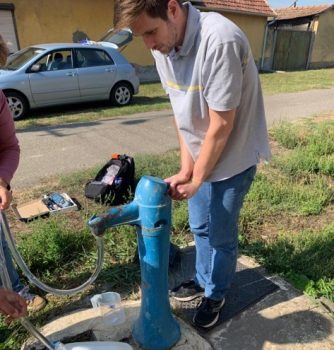
Jonathan Clayton, a third-year doctoral student studying environmental engineering at The University of Alabama, was selected as a 2024-2025 Fulbright scholar, which is one of the most prestigious academic exchange awards in the world. Clayton recently returned from conducting groundbreaking research in Hungary focusing on the effects of water distribution system management strategies on arsenic in drinking water.
The Fulbright Program, sponsored by the U.S. Department of State, promotes international academic exchange and mutual understanding between the United States and over 140 countries. Clayton’s selection for this highly competitive grant reflects both his academic excellence and his commitment to global impact through science and education.
Working in partnership with Eötvös Loránd University in Budapest, Clayton’s project combined field sampling, data analysis and predictive modeling to help identify when and where arsenic contamination may occur in aging water systems. His field site, a low-income village in southern Hungary, provided real-world conditions where his research directly benefited residents. In addition to answering local questions about water quality, Clayton extended his impact as a guest teacher for middle school students in Kecskemét, introducing young learners to the importance of water science and environmental engineering.
Clayton explained that Hungary’s naturally high arsenic levels and the country’s efforts to meet strict EU water standards made it an ideal setting for his studies.

“While Hungarian groundwater does not have the highest concentrations of arsenic in the world, the legal and political ramifications of providing low-cost solutions to arsenic contamination in drinking water made Hungary the perfect place for studying,” said Clayton.
The Fulbright grant also allowed Clayton to engage with global scientific and educational communities to both share and grow as a researcher.
“My time in Hungary gave me a greater appreciation for how meaningful water is and how environmental management can create spaces for shared experiences and values,” said Clayton.
In addition to advancing his research, Clayton noted the personal impact of the Fulbright program.
“I was constantly amazed how quickly I was invited into Hungarian life. It did not take long for Hungary to feel less like a foreign country and more like a second home,” said Clayton.
The Fulbright program has long supported emerging leaders across disciplines, and Clayton’s selection underscores the value of scientific collaboration in addressing complex global challenges. Through research, teaching and community engagement, he embodies the program’s mission of fostering mutual understanding and building a better, more interconnected world.